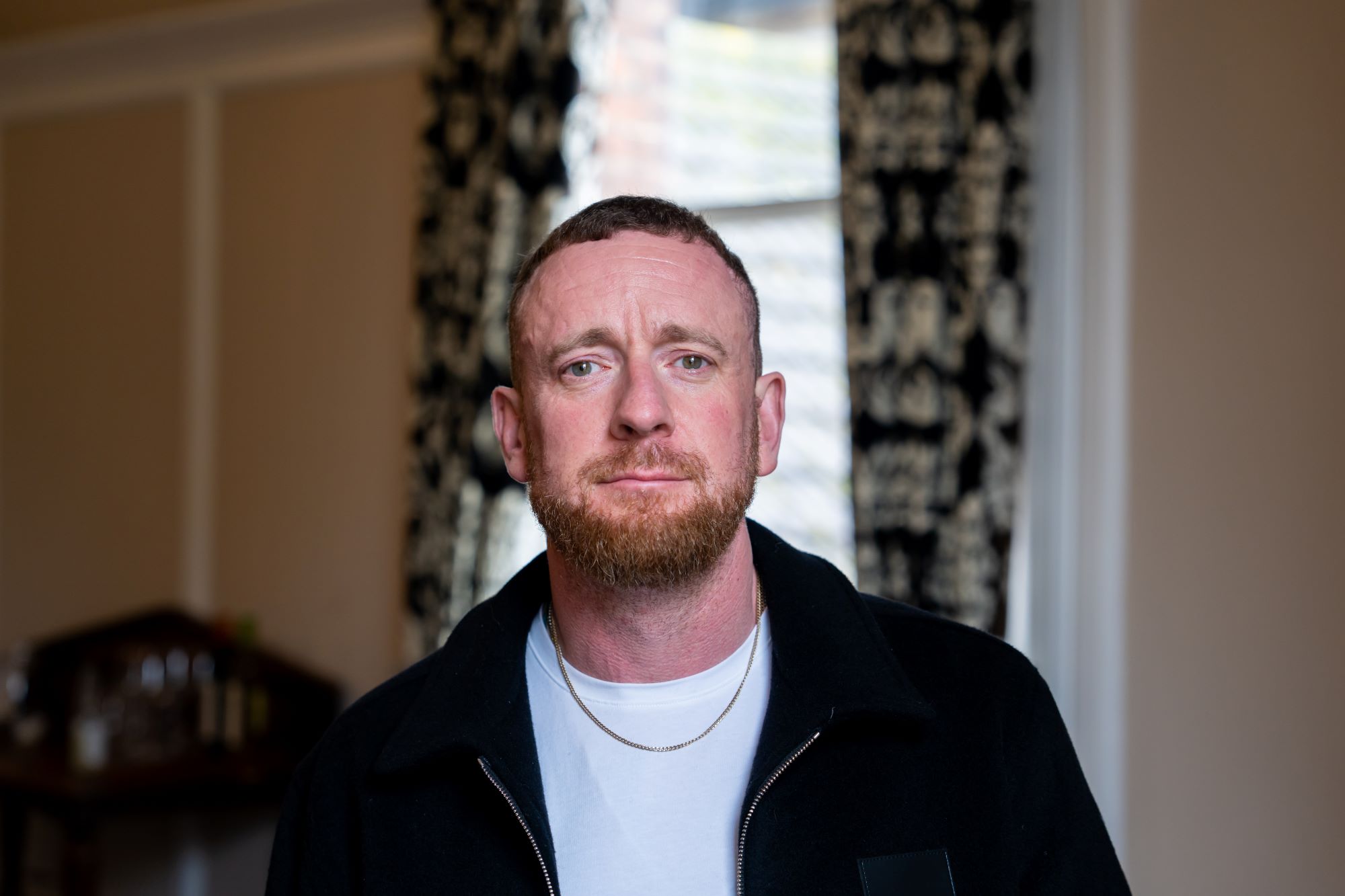
“It was a great distraction for everything else in my life that normal people would get time to get over,” says Sir Bradley Wiggins of his professional cycling career. Almost eight years after his retirement, Wiggins is still trying to redefine his relationship with the sport and is working through personal issues and trauma that span back even farther.
“I’ve always been around cycling and as much as I’ve tried to push it away in the past, I realised that it’s always going to be there,” he says. Indeed, Wiggins has had a tumultuous time finding his space within the cycling - and larger - world since his retirement in 2016. There have been angry rants about how much he hates cycling, but then on the flipside he has also indulged in nostalgic trips down memory lane on stage as he tours around the country speaking.
We’re chatting over a coffee at the National Cycling Show at Birmingham’s NEC on Sunday after an initial interview, as part of an intimate group of journalists, was cancelled the previous day. No one can blame the former Team GB star for not wanting to speak to the media - as we chat, numerous papers have splashed details of his financial woes, circling to pick apart the details of his bankruptcy that his lawyer recently told the Daily Mail had left the ex-pro “sofa-surfing” and without “a penny”.
While many of the articles praised his glittering career and professional achievements, they all asked the question of how has this become the situation for a man considered one of Britain's greatest ever cyclists.
In early June, The Times reported that Wiggins had been declared bankrupt, after going through financial difficulties with his company. When asked for comment in November last year, Wiggins told Cycling Weekly his financial difficulties were “a very historical matter that involves professional negligence from [others] that has left a s***pile with my name at the front of it to deal with.”
He added: “[It] happens to a lot of sportsmen while they’re doing the grafting and on that there’ll be a number of legal claims from my lawyers left, right and centre as a result.”
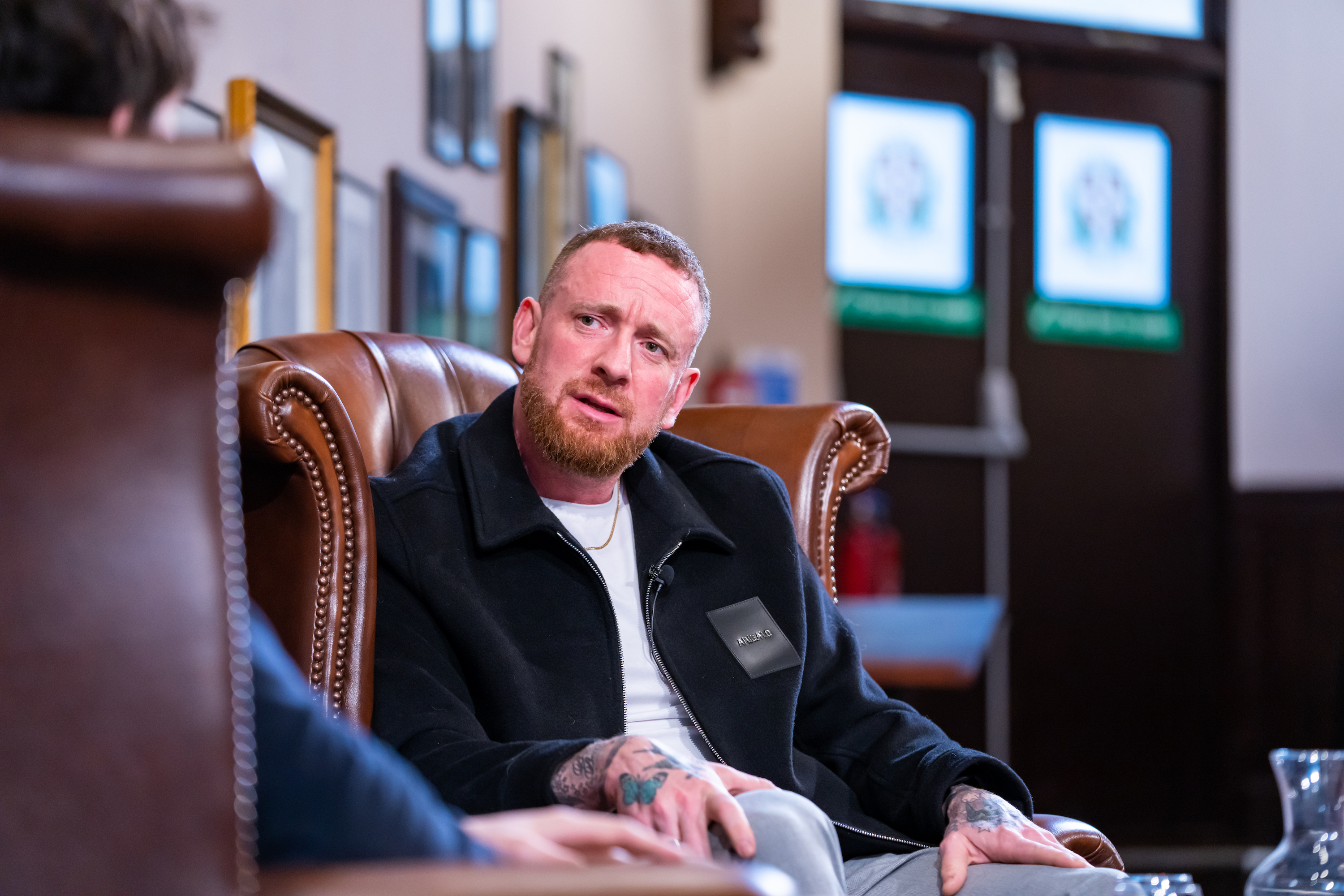
The bankruptcy, financial difficulties and the fresh comments published from his lawyer on the situation are off the cards during our conversation, but Wiggins, known for being a complex character, quickly delves deep into other personal issues, giving an insight as to where his head is at on this sunny day in Birmingham, even as all the noise surrounding his monetary affairs stirs online.
“You fall in and out of love with things, or you have enough of it, or at times it becomes an obsession like it did for me,” he says of cycling. After a period of time where he wouldn't even watch any racing, he says that he's now found “a happy balance”. Wiggins will be back at this year’s Tour de France in some capacity, although right now he says he can’t share specific details due to an embargo.
“I think the riding part for me was always going to be difficult,” he shares, describing how he maintained an element of fitness on the bike when he retired, but that, understandably, it “slowly drifted away”. A ride up the Sa Calobra a couple of years ago - a climb he held the unofficial record for, setting a time of around 22:30 during the winter before his Tour de France victory - was an experience that “demoralised” him. That time, it took him about an hour and a half to get up the climb.
“I realised that I couldn’t enjoy staying with the group and riding up, knowing where [it] would [have been] very easy for me in the past,” he says. “But now, I feel like getting back on the bike and finding my own level again now. Enough time has passed [that] I could find a happy balance.”
“But there’s always the pressure for me to do it: ‘why don’t you ride your bike?’ And when I go out, there’s [always] someone there who’s like ‘I can’t believe I’m beating Sir Bradley Wiggins up a climb’, but I’m not the same cyclist.”
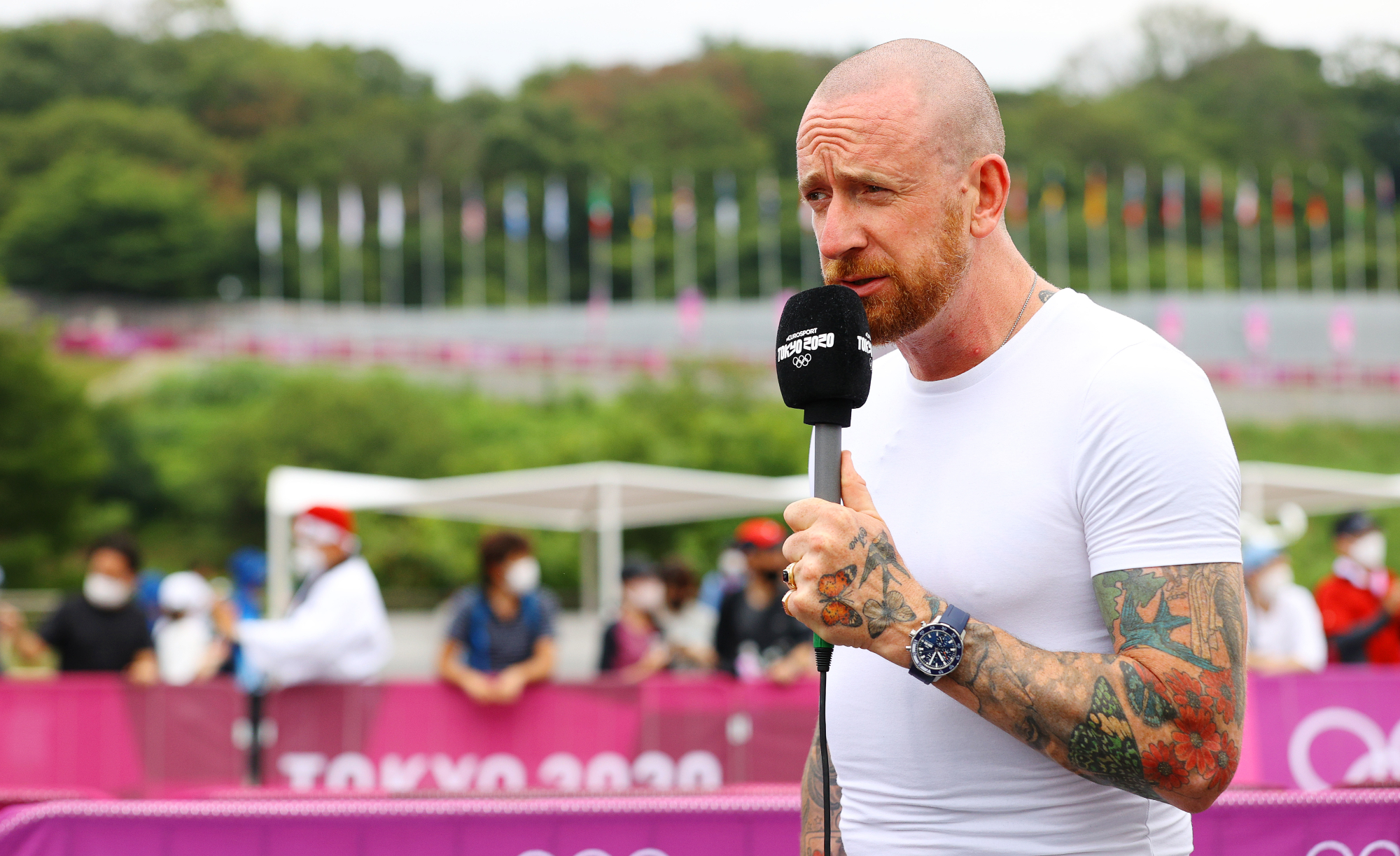
He thinks there should be more of a welfare system in place for those leaving or retiring from the sport: “but how that’s set up and funded, I don’t know.” Is there nothing in place at all when you retire, I ask? “You stop and no-one ever contacts you again,” he says plainly.
The first ever British winner of the Tour de France and five-time Olympic gold medalist, Wiggins believes it was always his “destiny” to become a cyclist, following in the footsteps of his father, the Australian professional cyclist Gary Wiggins.
He describes being “forever told” about his father, a man who he had a difficult relationship with and who left him and his mother when he was two years-old. “We are a product of our childhood and upbringing and I think that never leaves you,” Wiggins states with characteristic frankness.
On the topic of using cycling as a distraction, Wiggins reflects on how in the past he would tighten his focus on the bike whenever “anything big” would happen in his life. Now that he’s retired, there’s been a lot to unpack mentally and emotionally. He describes not being able to properly process the grief of missing his father's funeral in 2008, because he had the World Championships three weeks later. He’s been left with “a lot of unanswered questions” due to his father's absence in his life, he says, but it has also given him clarity when it comes to his own role as a parent.
“I realised how much that’s affected me in my adulthood, but I’ve become the opposite to my own kids. I’ve become everything that I wanted my parents to be,” he shares.
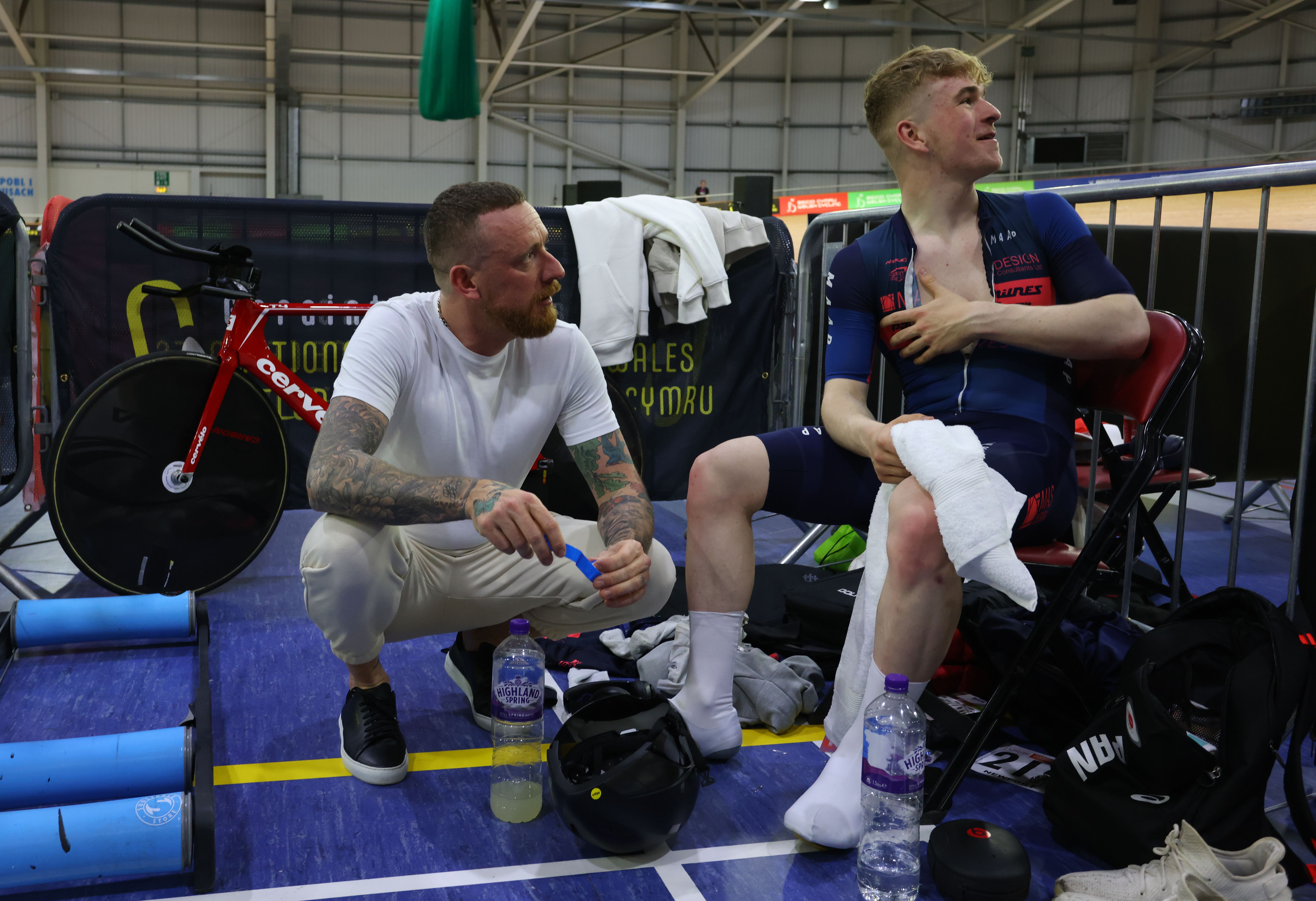
In a chat earlier, with former British national road champion turned pundit Matt Stephens on the main stage at the National Cycling Show, Wiggins spoke about how being a good parent is what gives him the most fulfilment in life, after candidly telling the assembled crowd that in the past there were “times when I wasn’t fit to be a parent”.
Speaking specifically about his son, the professional cyclist and junior world champion Ben Wiggins, the 44-year-old tellingly said: “I don’t get involved in his cycling. I’m just his dad and I think that’s an important thing to say. I just want to be his dad.”
Wiggins says that although he mentors his son, as a parent would, he knew it would have been “very unhealthy” to get into a working relationship with him. Wiggins also touches upon how watching his son getting into cycling as a teenager “dragged up a lot of things” for him.
In an interview for Men’s Health in 2022, Wiggins opened up about grooming and sexual abuse he alleged he suffered when he was 13 by his coach at the time. “It was like looking in a mirror, watching him go through the same steps in the same pathway that I did,” he says.
Speaking out about the trauma, his battle with depression and his tough upbringing has inspired fans and members of the public to reach out to him, and Wiggins is seemingly struck by how many people have shared their experiences with him.
“I’m only starting to realise that maybe there’s a new realm for me and a new sort of ‘inspiration’ I guess, if that’s the right word without being too egotistical,” he says. “People have said ‘I think your best years are ahead of you’ [and] that’s a nice perspective.”
Wiggins says he’s been learning of a new way to engage with people. “I got stuck in my own little world,” he says, describing how people sharing their stories has also helped him.
Earlier, he told Stephens: “I’m more happy in my skin than I’ve ever been.” In the past, instead of sitting opposite him on a stage, Wiggins said he would “just disappear and go [in] to isolation”.
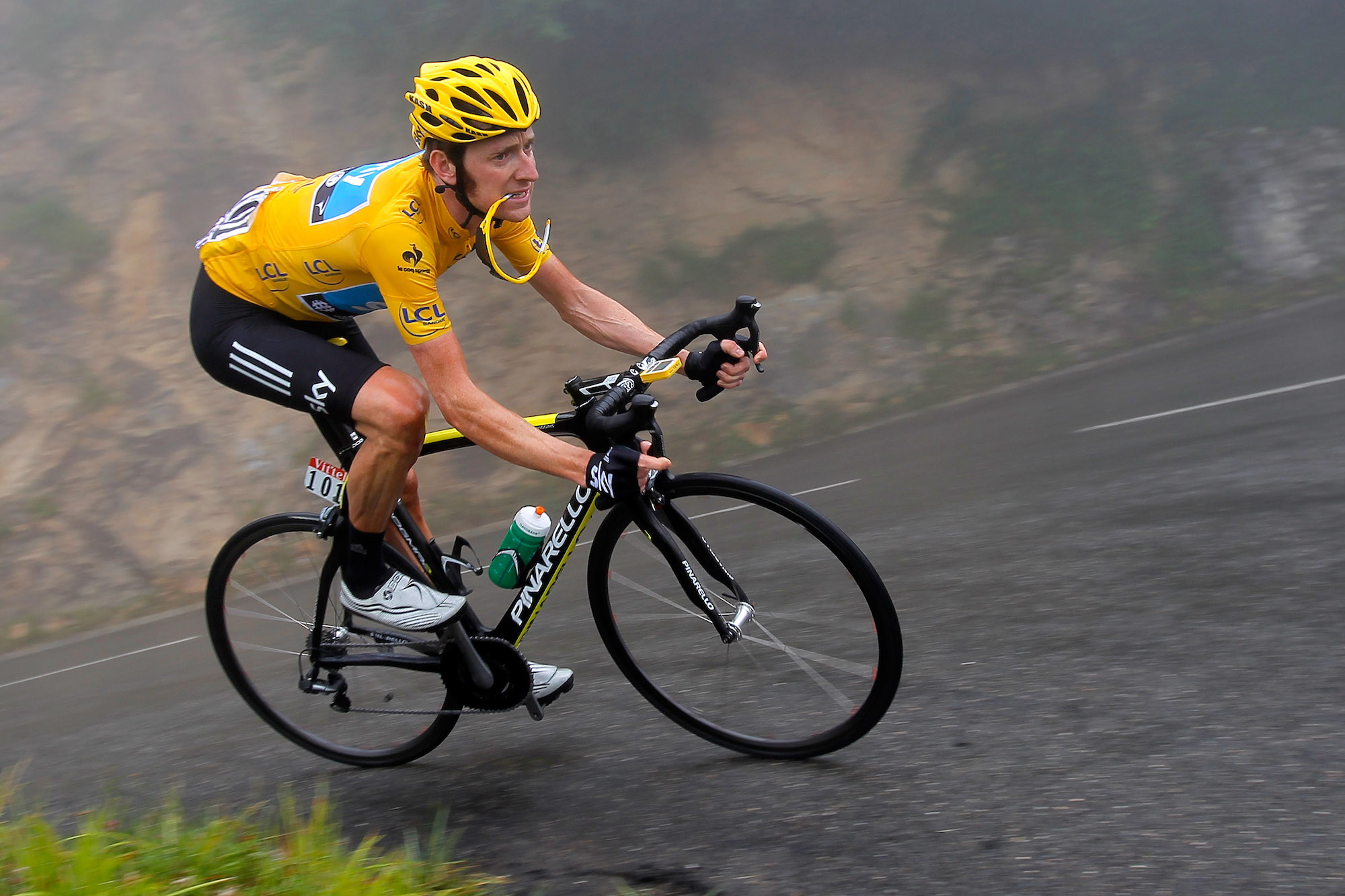
As we talk, Wiggins glances over at a glossy poster of himself in an aero tuck during the peak of his professional cycling days. “I had this extreme confidence on the bike, but off it - when I look back - I was quite contentious at times. I was quite sweary and I could be hot and cold some days. And particularly the veil I adopted when I was this rock and roll star in 2012, the drinking and stuff… it was a way of hiding in public to disguise and distract from who I really was,” he explains.
“I was never comfortable enough to just sit and have a normal conversation with someone. I’d have to play a character because I didn’t really know who I was …” He pauses and apologises for going so in-depth, before adding that these are all things he’s learned over the last few years.
“I’m still uncomfortable being the centre of attention. A little bit of that will never leave me,” says Wiggins, but he’s making inroads on what his future could look like.
Right now, he’s working with sports nutrition brand, Applied Nutrition, on their new product development and attending events as a speaker (which he’s described as “cathartic”), volunteering and working with young offenders, although he says he can’t share further details on the latter due to safeguarding issues.
Whichever road he goes down, cycling, will always play a part in his future endeavours. How could it not with a legacy like his? As Wiggins put it to Stephens, when he was asked where he was right now with cycling: “It’s just part of the fabric of who I am and I don’t want to label it as love or not love. I’m slowly edging my way back in… It’s something I’ve embraced again but not fallen in love with… I’m still keeping it at arm’s length.”






